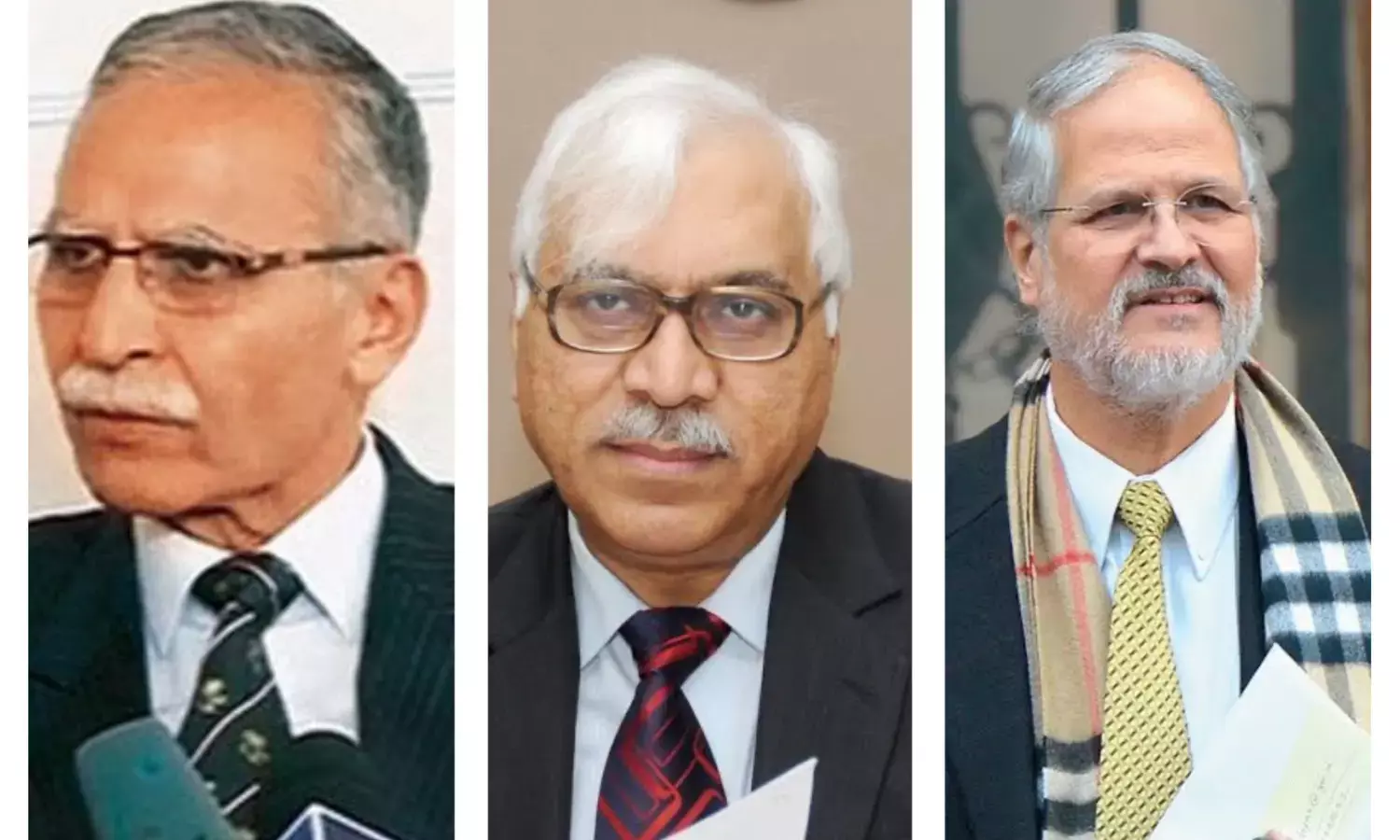Five Muslims Seek RSS Cover
Déjà vu
Five Muslims, three of whom have served in government in some capacity or the other, met RSS chief Mohan Bhagwat. They insisted that they had sought the meeting and not been summoned as some detractors on the social media claimed. But what they forgot to highlight with equal vehemence was that the meeting took place a month before the news was made public. And that the RSS chief's visit to a mosque and a madarsa actually happened a month after the five muslim had convinced him of their good intentions, and the need as they said, to start a dialogue with the community.
That the news and the visit coincided with nation wide raids and arrests on the Popular Front of India, a muslim outfit that has expanded with some rapidity since the BJP came ot power of course, was just a coincidence. But more of this later.
For now the focus is clearly on the five Muslims who met Bhagwat. And have been on a fairly desperate publicity overdrive, giving interviews and writing their own articles to justify the meeting. That the articles are becoming increasingly defensive is another issue altogether, suggesting some kind of flak from the muslim community that does not seem to be particularly appreciative of this initiative hatched and executed in Delhi.
Their discussion is immaterial. What transpired is really a matter of meaningless detail. As neither the RSS interested in these talks except for the semantics that have been written about, and nor are these men in any position to influence the relationship between the RSS and the Muslim community. The former is in a position of strength and over these recent years has made its intention and agenda very clear, even to those who pretended to be in doubt. And the community itself is scattered and terrified and leaderless.
Leaderless as Muslims in India had always looked upon the secular political parties to answer their aspirations, but gradually found themselves isolated and on the political periphery. As in the current environment not many political leaders are willing to stand up for the community lest they be attacked and trolled for muslim appeasement.
In the midst of this come the five Muslim 'leaders' without a mass base, except for a Delhi profile created through their years in office. Najeeb Jung came into the limelight as the Lt Governor of Delhi, and of course the Vice Chancellor of Jamia Millia. SY Qureshi also earned some points as the Chief Election Commissioner. Lt General Zameeruddin Shah who was the Vice Chancellor of Aligarh Muslim University. Shahid Siddiqui, a media person who has been attached to different political parties. And Saeed Shervani, a businessman who is the least sought out of the group in terms of media attention.
There is a feeling of déjà vu. The Muslim community has always been 'represented' by individuals living in the proximity of power, since the country became independent. As the years passed, the ruling parties playing the perception game, found it easier to accommodate such Muslims queueing up for attention. Many had come out of government, but all were jostling for establishment favours. President, Governors, Vice Chancellors, heads of commissions, the works. Successive ruling parties played along and accommodated these mass-less individuals, in a weird effort to 'please' the community. With little to no regard for the fact that the reach of these individuals was confined to the capital, and the corridors of power to some extent, but with no connection with the people as it were.
But that did not stop the aspirants or their benefactors. The BJP has of course come in with a full fledged attack on the minorities, starting with the lynchings and moving on to purge itself of muslim members, and ensuring that the government has a say in all community personal affairs — food, clothing, marriage and divorce, worship. In the midst of this, at the first positive signals, the five rose like the Phoenix to initiate talks. And thereby try to convince the Muslims that they are speaking for the community and not themselves. Just like their predecessors in easier times who came into office on the back of India's largest minority, and then of course promptly forgot that it existed. And that promises were not fulfilled, and discrimination continued and increased.
To give it its due, the RSS is well aware of what it is doing and why it is doing it. Speculation apart Bhagwat did not meet the intellectuals without his own game plan that unfolds slowly and at the moment remains more in the realm of speculation. That is why he took a month to make it public.
When a dialogue is lopsided, and when the intent is questionable on all sides, success remains a mirage that might please some but has the potential of doing more damage before it disappears.





